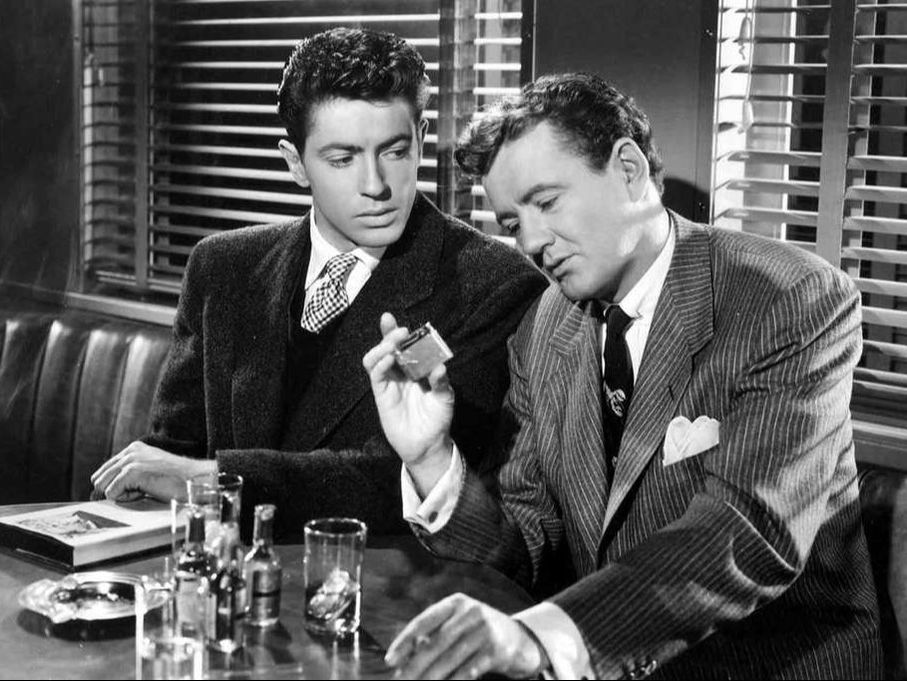|
A psychotic strikes up a conversation with a tennis player about
how two strangers can get away with murder, only he's dead serious. CRIME/DRAMA
|
Strangers on a Train (1951)Directed by Alfred Hitchcock
Written by Raymond Chandler and Czenzi Ormonde Starring Farley Granger, Robert Walker, Ruth Roman, Leo G. Carroll, Patricia Hitchcock, Kasey Rogers, Robert Gist Based on the novel by Patricia Highsmith Oscar Nominations - Best Cinematography |
Alfred Hitchcock will forever be known as the Master of Suspense, and it's films like Strangers on a Train that earned him that title. This film brings new meaning to the term "idle conversation," as you never know who you're making small talk with, or how many loose screws are rattling around inside their head. On paper, the proposed theory of getting away with the perfect murder makes sense, with two strangers swapping murder targets so as to clear themselves of motive. However, as Hitchcock teaches us, you never can plan on everything, especially when one of the killers backs out when its too late.
Meet Guy Haines, a pro tennis player/aspiring senator played by Farley Granger. He's a handsome, charming man with only one problem. A cheating wife who won't give him a divorce. While on the train, he meets Bruno Anthony, a complete lunatic and utter sociopath played to perfection by Robert Walker. Bruno hears Guy's woes and wants to fix them, in exchange for the murder of his own father. Guy laughs off these claims, thinking Bruno's just a lot of talk, until his wife Miriam turns up dead. From there on, the film transforms into an edge-of-our-seat thriller as Guy refuses to kill Bruno's father, leading Bruno to attempt to pin Miriam's murder on Guy himself. Hitchcock ups the drama in the third act with a surprisingly tense tennis match leading to a showdown between the two men on an out-of-control carousel. Strangers on a Train is a simple film with a crazy story to tell, one that's built entirely on the "wrong place, wrong time" trope. While I do feel that Hitchcock underutilized the police element in the story, the character of Bruno easily cancels out the negative. He's a textbook psychopath, a predecessor for Patrick Bateman. He's a man you never want to cross, because his reaction will be nothing short of swift and unpredictable. It's yet another thing that shows how much Hitchcock shaped the thriller subgenre and introduced themes that would be seen years later. This film is engaging and smart, from its screenplay to the expert performances. |
